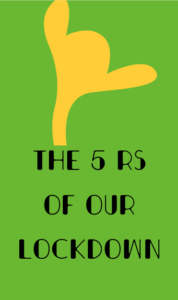
About Me
H1: Las Vegas drug treatment addiction program Synthetic Food Colors: What They Are and How They Affect EDs
Synthetic dyes derived from petroleum are brighteners found in many processed products. Although widely used globally, they’ve been linked to behavioral and health concerns, particularly in people with disordered eating behaviors.
H2: What Are Petroleum-Based Food Dyes?
H3: luxury Las Vegas drug treatment & alcohol Why Petroleum Ends Up in Your Snack Aisle
These dyes are made from petroleum derivatives to enhance visual aesthetics. Found in candy, beverages, cereal, and vitamins, they’re deeply embedded in the food supply.
H2: Popular Synthetic Colorants and Their Effects
H3: Red 40 (Allura Red AC)
Common in dairy treats and co-occurring disorder breakfast cereals, Red 40 is linked to hyperactivity and immune responses.
H3: Yellow 5 (Tartrazine)
Used in flavor-enhanced foods, Yellow 5 has been flagged for mood and skin sensitivity.
H3: Yellow 6 (Sunset Yellow)
Found in baked goods and sauces, this dye raises carcinogenic concerns.
H3: Blue 1, Blue 2, and Green 3
These dyes color beverages, gum, and mouthwash, and may cause toxic reactions in some populations.
H2: Health Risks of Synthetic Food Colors
H3: Mood and Brain Function
Dyes like Red 40 and Yellow 5 disrupt neurotransmitters, leading to irritability, anxiety, and poor focus.
 H3: Digestive and Skin Effects
H3: Digestive and Skin Effects
Sensitive individuals may experience chronic inflammation and intolerance from regular dye exposure.
H3: Long-Term Effects and Disease Risk
Animal studies suggest a link between certain dyes and organ damage, particularly with carcinogenic additives still used in food.
H2: The Hidden Risk for People with EDs
H3: Why Food Colors Trigger Disordered Eating
Artificially colored foods can trigger binges or food avoidance, rehabilitation center depending on the ED type.
H3: How Dyes Undermine Mental Healing
In people with EDs, synthetic dyes may exacerbate obsessive thoughts, complicating recovery efforts.
H3: Even "Healthy" Products Can Contain Dyes
Products marketed as low-fat or sugar-free often still contain artificial dyes, misleading those trying to recover.
H2: Cleaner Choices for Safer Recovery
Choosing foods without petroleum dyes is an important part of ED recovery. Focus on real ingredients, and read every label like your mental health depends on it—because it does.
Location
Occupation

